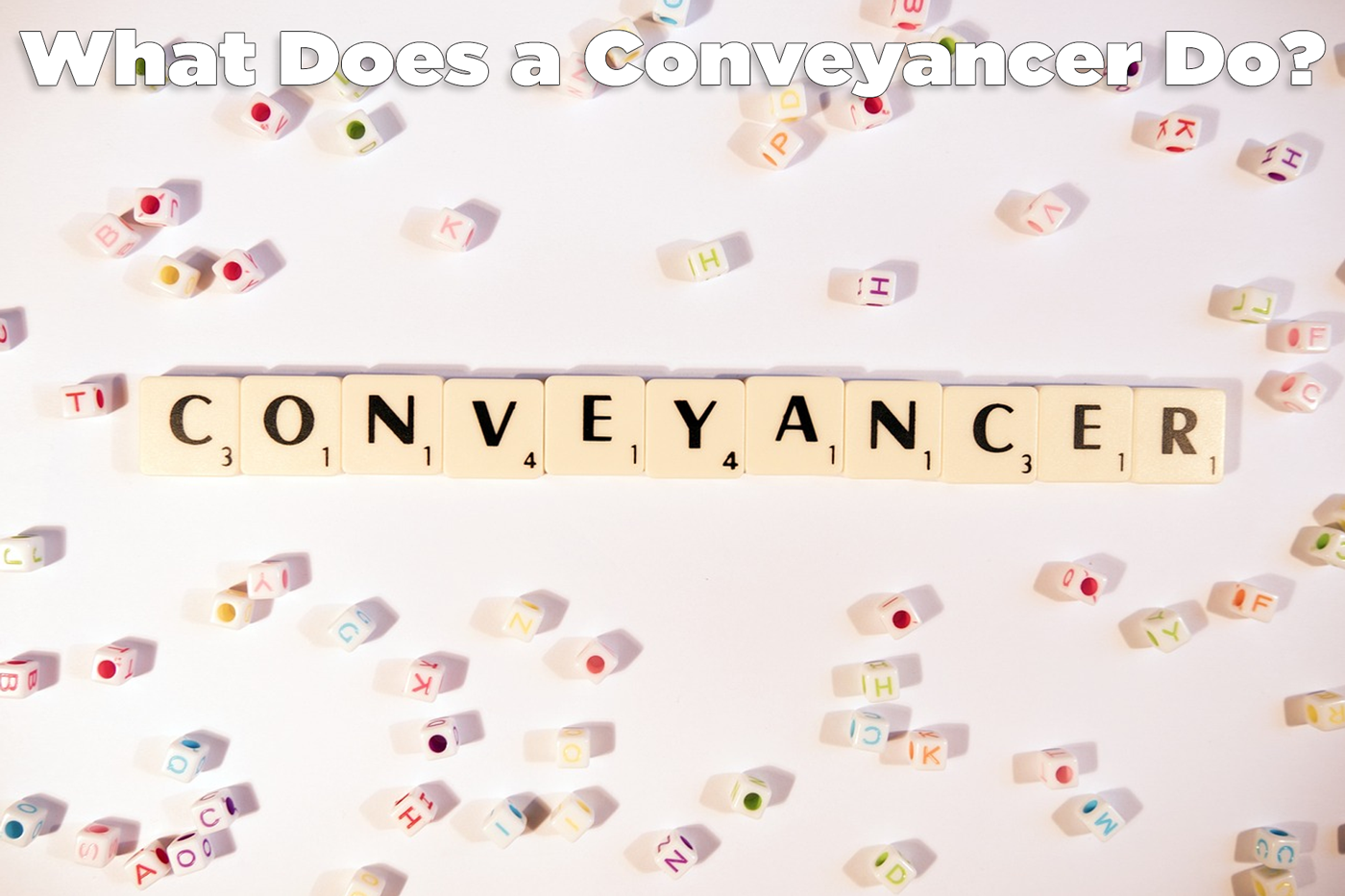
What does a conveyancer do when Selling a House on the Gold Coast?
Conveyancing is the legal process involved in the transfer of property ownership from the seller (vendor) to the buyer (purchaser). This process usually involves the sale of real estate. It may also include the granting of a new mortgage over the property to a lender and the discharge of any existing mortgage.
The Role of a Conveyancer in Property Transactions
Conveyancing is an essential part of the property buying or selling process. It refers to the legal procedure involved in transferring property ownership from one person to another. This article provides a comprehensive outline of the conveyancing process and the crucial role a conveyancer plays in it.
The steps involved in the conveyancing process can vary depending on the jurisdiction. However, the general process usually involves the following stages:
- The contract of sale comes into existence.
- Settlement and completion occur.
- The title document is registered.
Let’s delve deeper into each of these stages.
The Contract of Sale
The contract of sale is a critical legal document that lays the foundation of the conveyancing process. This document should ideally be prepared by experts, as many disputes between buyers and sellers arise from misunderstandings about the contract’s contents.
Under numerous laws, the contract needs to include specific documents, certifications, and disclosures. When a potential buyer is interested in a property, they can make an offer to purchase it. If the seller accepts this offer, they may enter into negotiations over the price and conditions of the sale.
Settlement and Completion
The settlement and completion stage is when the balance of the purchase money is paid, and the title transfers to the purchaser. This stage often involves a series of negotiations and checks, including ensuring that the property is in the promised condition and that all legal obligations have been met.
Title Document Registration
The final stage involves registering the land registration details to reflect the purchaser as the new owner. This stage is crucial to legally securing the purchaser’s ownership of the property.
The Role of a Conveyancer
A conveyancer is a legal professional who specializes in the legal aspects of buying and selling real property. They play a crucial role in each stage of the conveyancing process, guiding both the seller and buyer through the process and ensuring all legal requirements are met.
Contract of Sale
In the first stage of conveyancing, the conveyancer plays a key role in preparing the contract of sale. They ensure that the contract includes all necessary documents, certificates, and disclosures as mandated by law.
Settlement and Completion
During the settlement and completion stage, the conveyancer facilitates negotiations between the seller and buyer. They also ensure that all checks are carried out to ensure the property is in the promised condition and that all legal obligations have been met.
Title Document Registration
In the final stage, the conveyancer ensures that the title document is registered correctly, reflecting the buyer as the new owner. They facilitate the legal process of transferring the title and securing the buyer’s ownership of the property.
THE CONVEYANCING PROCESS: A STEP-BY-STEP GUIDE
Now that we have an understanding of what conveyancing is and the role of a conveyancer let’s delve into a detailed step-by-step guide of the conveyancing process.
Drafting the Contract of Sale
The conveyancing process begins with the drafting of the contract of sale. This is a crucial document that outlines the terms and conditions of the property sale. It is typically prepared by the seller’s conveyancer or solicitor.
Making an Offer
Once the buyer has expressed an interest in the property, they may make an offer to the seller. If the seller accepts this offer, the two parties may enter into negotiations over the price and conditions of the sale.
Paying a Deposit
To demonstrate their serious intent to purchase the property, the buyer usually pays an initial deposit. This deposit is generally non-refundable and is held by the real estate agent or the seller’s solicitor or conveyancer.
Buying at Auction
If the property is sold at auction, the buyer is obligated to purchase the property if they make the highest bid. It is important for the buyer to have their finance arranged and all necessary property inspections carried out before the auction.
Risk Management
Until the settlement or completion of the sale, the responsibility for any damage to the property remains with the seller. However, it is prudent for the buyer to insure the property from the exchange of contracts.
Exchange of Contracts
During this stage, the final contracts are exchanged between the seller and the buyer. Each party will have a copy of the final contract, which includes a significant amount of information, such as the agreed price, settlement date, inclusions, zoning restrictions, caveats, easements, and any special considerations.
Cooling-Off Period
After the exchange of contracts, the buyer generally has a cooling-off period. This period allows the buyer to rescind the contract before the end of the cooling-off period, if they so wish. However, it’s important to note that this does not apply to sales made at auctions.
Transfer of Property Title
The buyer’s conveyancer prepares a transfer document, which the buyer signs, and pays any stamp duty required for the document’s registration. The transfer document is then sent to the seller’s conveyancer for the seller to sign.
Time for Completion
The completion of the contract can be set by mutual agreement between the seller and the buyer. This time span can vary and can be quite lengthy for off-the-plan purchases, as the contract can only be completed after the building construction is completed and new titles are issued.
Requisitions
After the exchange of contracts, the buyer’s conveyancer will typically send a list of formal questions about the property, known as requisitions on title. This process helps to obtain information about the property that may not have been disclosed or discovered during the property inspection.
Outgoing Mortgagee
If the seller has a mortgage over the property, the mortgagee must be contacted to provide a payout figure and attend the settlement to hand over a discharge of mortgage and, often, the certificate of title or title deed.
Adjustments
At the settlement, adjustments are made for items such as council rates, water rates, strata body corporate contributions, land tax, and rent, if the property is tenanted.
Settlement
The sale is said to settle or complete when the buyer pays the balance of the purchase money, plus or minus adjustments, to the seller. The title documents are handed over in exchange for the payment.
After Settlement
After the settlement, the buyer or the buyer’s mortgagee will register the transfer documents with the Land Titles Office. Various authorities, such as the local council, water authority, and Valuer General’s office, are then informed about the change of ownership.
Conveyancing is a crucial legal process that ensures the smooth transfer of property ownership. A conveyancer plays a vital role in this process, guiding both the buyer and seller through each stage and ensuring all legal obligations are met. Understanding the conveyancing process can help property buyers and sellers navigate this often complex journey with confidence.
Author – Craig Douglas
Please Note: The information contained in this document is for general information purposes only and does not constitute legal advice. The laws and regulations governing the sale of property in Queensland are complex and constantly changing. It is important to seek the advice of a qualified property lawyer or conveyancer before making any decisions about the sale of your property. This document does not take into account your individual circumstances and may not apply to your situation. By reading this document you agree that you have not relied on the information contained herein and that you will seek independent legal advice before taking any action.

Let’s turn your selling dreams into SOLD. Ready for a coffee to chat? Craig Douglas, here to help you get SOLD 0418 189 963
Are you ready for a casual chat?
Let’s get you Selling
LET’S GET YOU SOLD
PHONE ME NOW, Craig Douglas 0418 189 963
Professional | Knowledgeable | Experienced
THE AGENT YOU KNOW
This page was proudly created by Craig Douglas, your local independent Gold Coast real estate agent, working for a Boutique Real Estate Agency. Selling residential and commercial properties, from those that are awe-inspiring, through to a diamond-in-the-rough, otherwise known as a “renovator’s delight”.
I negotiate and sell on behalf of property owners who want to get the best possible price with the least amount of hassle. Let’s talk about the process of selling your property over a coffee to get you started – 0418 189 963
